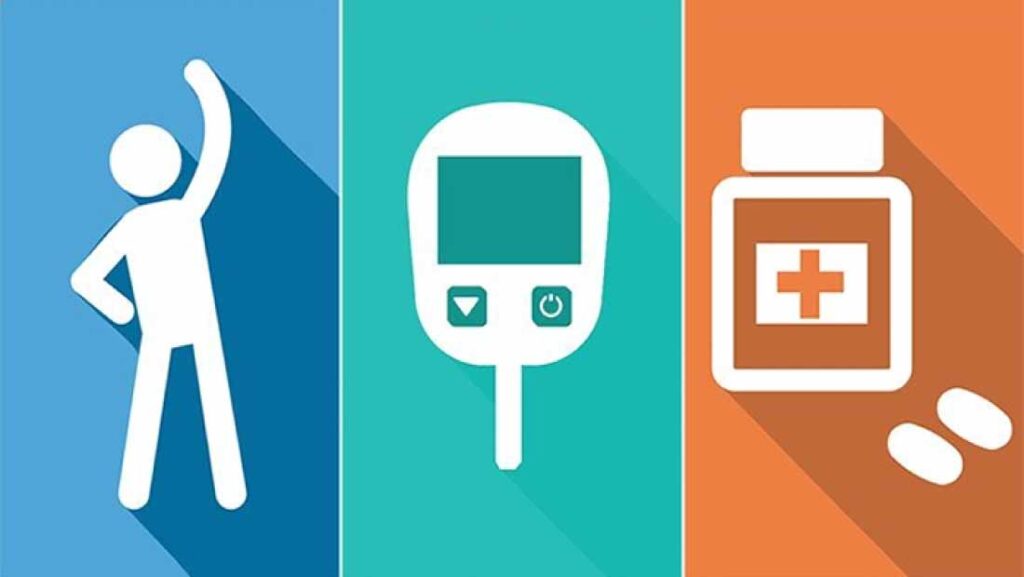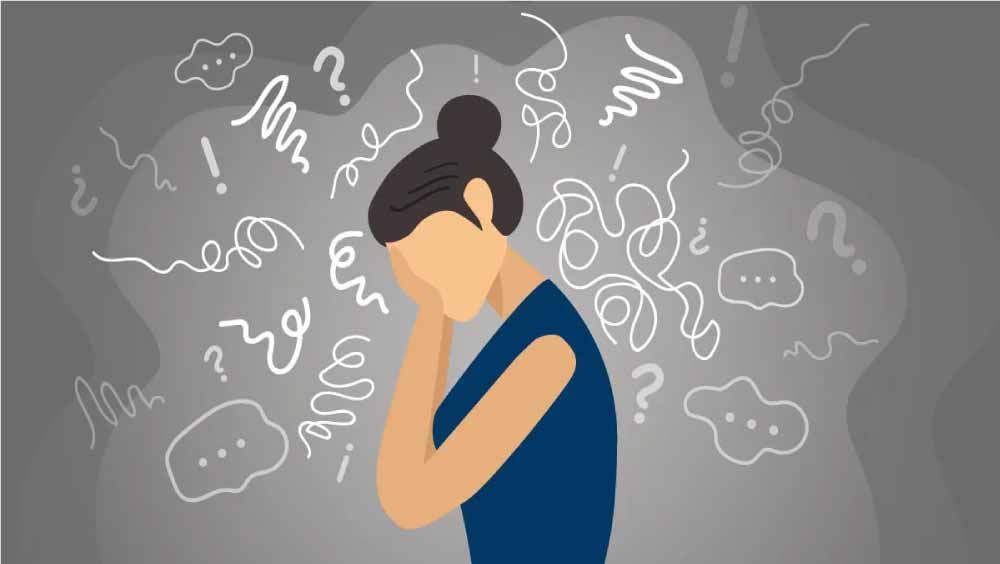Preventing and treating chronic diseases naturally can be an effective option for many people. Some of these diseases include diabetes, cardiovascular diseases, chronic obstructive pulmonary disease (COPD), arthritis, among others.
There are many natural approaches that can help prevent and treat these chronic diseases, such as:
It’s important to remember that you should always talk to your doctor before beginning any natural approach to preventing or treating a chronic diseases. In addition, these natural techniques should be used in conjunction with conventional medical treatment and not as a substitute.
Healthy diet
A healthy diet is essential to maintaining good health and preventing chronic diseases such as diabetes, cardiovascular disease, obesity and cancer. A healthy diet should be balanced, varied and based on whole and fresh foods. Here are some general guidelines for following a healthy diet:
Eat a variety of foods: Consume a variety of fruits, vegetables, whole grains, lean proteins, and healthy fats for a wide range of nutrients.
Limit processed foods: Limit processed foods and foods high in sugar, trans fat, and sodium. These foods can increase the risk of chronic diseases and increase weight.
Increase fiber intake: Fiber helps maintain a healthy digestive system and can help lower cholesterol and the risk of heart disease. High-fiber foods include fruits, vegetables, beans and legumes, and whole grains.
Reduce consumption of red and processed meats: Red and processed meats can increase the risk of heart disease and cancer. Try to limit your consumption of these foods and opt for lean protein sources such as chicken, turkey, fish, tofu, and beans.
Limit alcohol consumption: Excessive alcohol consumption can increase the risk of heart disease, liver disease, and cancer. It is recommended to limit alcohol intake to one drink a day for women and two for men.
Stay hydrated: Hydration is essential for good health. Drink plenty of water throughout the day and limit your intake of sugary drinks and soda.
Remember that healthy eating is a way of life and not a fad diet. Talk to a nutritionist or health professional for personalized recommendations for your situation and lifestyle.
Physical activity
Regular physical activity is essential to maintain good health and preventing chronic diseases such as diabetes, cardiovascular disease, obesity and cancer. Physical activity can be any type of movement that gets your body moving and burns energy. Here are some general guidelines for following healthy physical activity:
Increase daily physical activity: Try to be more active in your daily life. Walk or bike instead of driving, climb stairs instead of taking the elevator, and take breaks from work to get moving.
Get moderate physical activity: Get at least 30 minutes of moderate physical activity most days of the week. This can be anything that makes you breathe a little harder, such as brisk walking, biking, swimming, or dancing.
Engage in vigorous physical activity: Get intense physical activity at least twice a week. This can be anything that makes you breathe hard and sweat, such as running, jumping rope, or playing sports.
Maintain a routine: Try to do physical activity at the same time every day to establish a routine and make it a habit.
Vary the types of physical activity: Vary the types of physical activity you do to keep you interesting and challenging. Try a combination of aerobic, strength, and flexibility activities.
Remember to talk to a doctor before starting any physical activity program, especially if you have a chronic illness or have been inactive for an extended period. Also, start slowly and gradually increase the intensity and duration of physical activity to avoid injury.
Stress management
Stress is a normal response of the body to challenging situations, but when experienced frequently or for prolonged periods, it can have negative effects on mental and physical health. Here are some general guidelines for managing stress:
Identify the causes of stress: Identifying the causes of stress is the first step in managing stress. Take note of the situations, people, or events that trigger your stress.
Make lifestyle changes: Making lifestyle changes can reduce stress. This can include eating a healthy diet, exercising regularly, getting enough sleep, and avoiding excessive consumption of alcohol, tobacco, and caffeine.
Practice relaxation techniques: Relaxation techniques can help reduce the body’s response to stress. Try meditation, deep breathing, yoga, tai chi, or progressive muscle relaxation.
Set boundaries: Setting healthy boundaries can help reduce stress. Learn to say “no” to things that burden you and set clear boundaries at work and in personal relationships.
Make time for pleasurable activities: Making time for pleasurable activities can reduce stress and improve emotional well-being. Look for activities you enjoy that make you feel good, such as reading, listening to music, painting, or spending time with friends and family.
Seeking support: Seeking support from friends, family, or a mental health professional can be helpful in managing stress. Talk about your feelings and concerns and seek help if needed.
Remember that stress management is an ongoing process and takes time and practice. Experiment with different techniques and find the ones that work best for you. If you experience severe symptoms of stress, such as anxiety, depression, or sleep problems, talk to a mental health professional.
Natural supplements
Natural supplements are products that contain ingredients derived from natural sources, such as plants, herbs, and foods. Some natural supplements can help improve health and preventing chronic diseases, but it’s important to note that not all supplements are safe or effective. Here are some general guidelines for using natural supplements:
Consult with a healthcare professional: Before taking any natural supplement, talk to a healthcare professional, especially if you are taking medication or have a chronic illness.
Research supplements: Research the supplements you’re considering taking to make sure they’re safe and effective. Look for scientific studies, expert opinions, and user reviews.
Follow dosage instructions: Follow the dosage instructions on the supplement label and do not exceed the recommended dose.
Buy quality supplements: Buy quality supplements from a reliable company and verify that the product has been tested by third parties to ensure quality and safety.
Use caution with side effects: Use caution with supplement side effects and discontinue use if you experience adverse side effects.
Do not use supplements as a substitute for a healthy diet: Supplements should not be used as a substitute for a healthy and balanced diet. Try to get the nutrients you need from a variety of healthy foods.
Remember that natural supplements can be useful as a supplement to a healthy lifestyle, but should not be used as a substitute for proper medical care. Always talk to a healthcare professional before taking any supplements.
Acupuncture
Acupuncture is a traditional Chinese medicine technique that involves inserting thin needles into specific points on the body to relieve pain and treat a variety of conditions. According to traditional Chinese medicine theory, acupuncture balances the flow of energy in the body, known as “qi” or “chi.”
Here are some general guidelines for acupuncture:
Find a Qualified Acupuncturist: Find a qualified, licensed acupuncturist who has experience and is certified in your state or country.
Share medical information: Share complete medical information with the acupuncturist, including any medical conditions, medications you are taking, and previous medical treatments.
Don’t expect immediate results: Don’t expect immediate results after an acupuncture session. It may take several sessions to see improvements in symptoms.
Stay hydrated: Drink enough water before and after the acupuncture session to help flush out any toxins released by the body during the session.
Avoid alcohol and medications before the session: Avoid alcohol and medications that may alter your mood or level of consciousness before the acupuncture session.
Use caution with certain health conditions: Use caution with certain health conditions, such as hemophilia, bleeding disorders, diabetes, and seizure disorders. Discuss these conditions with your acupuncturist before starting treatment.
It is important to note that acupuncture is not for everyone and there may be risks involved. Always talk to a healthcare professional before beginning any acupuncture treatment.


